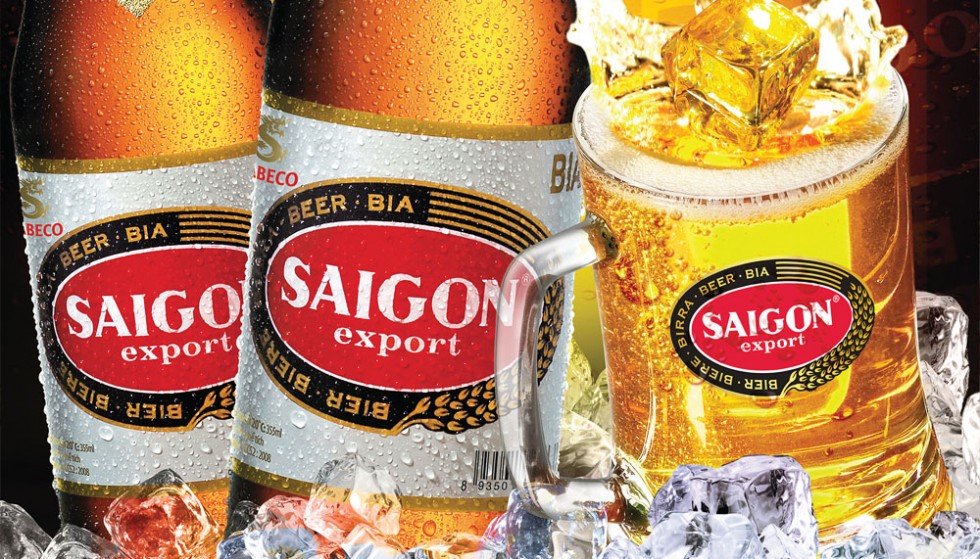Saturday, 07/02/2026 | 03:24 GMT+7
Saigon - Hanoi Beer Joint Stock Company - (SABECO-HANOI) was established in July 2007 and is a member company of the Saigon Beer Alcohol Beverage Corporation (SABECO).
With designed capacity of 90 million litres of beer, the main products of the company are "Saigon" beer brands, draught beer and 2L special Keg draught beer, the leading beer brands of SABECO in the domestic market, SABECO-HANOI has embraced management systems for their production processes for many years including ISO 9001:2008, ISO 14001:2004, and hazard analysis and critical control points (HACCP).
SABECO-HANOI and UNIDO deliver a winning approach
SABECO-HANOI actively engaged in the industrial energy efficiency project sponsored by the Global Environment Facility (GEF), and implemented by the Ministry of Industry and Trade (MOIT) and United Nations Industrial Development Organization (UNIDO) to implement the energy management system (EnMS) in line with ISO 50001.
The project lasted 12 months and focused on the implementation of structured processes for the management of energy throughout the organisation. Within the framework of the project, the company was engaged by national and international experts conducting trainings on EnMS principles aligned to ISO 50001.
The practice of EnMS application at the plant is a combination of the work of the UNIDO experts and the company's own energy management team. As a result of this cooperation, the EnMS principles were mainstreamed with the unique culture of SABECO-HANOI in order to deliver an effective improvement culture which delivered sustainable £ improvements to the organisation.

Technical Solutions and Behavioural Change
Effective implementation of technical solutions for energy efficiency is only one element of an effective management system. The technical solutions were implemented in parallel with behavioural changes in energy use throughout the company such as improved awareness of factory personnel of their impact on energy performance and how they could minimize this impact in their day-to-day activities.
Data
A cornerstone of the system was the review of the facility's operations. Coached by international experts, the system evolved through the careful collection and use of data. This was exploited through the following interventions:
Energy billing information was compiled and analysed in order to determine the key energy drivers in the organisation and to determine the current factory performance using the latest analytical methodologies. This led to the development of energy performance baselines upon which the improvements in performance could be measured.
Asset lists were generated for all energy users in the facility resulting in a survey of all electrical and thermal users (in excess of 250 individual pieces of equipment). These were analysed to determine the significant assets of the organisation.
Critical Operating Parameters were determined for the significant energy using equipment, forming part of the behaviour change element of the management system.
All personnel that could have an effect on the significant energy users were trained on the operating parameters in order to ensure that the most efficient operation of the plant is consistently achieved.
These performance indicators form a key element of the operational management of the plant and inefficiencies are investigated and rectified in a timely manner.
As a result of the energy management system implementation, the energy performance of the organisation has been significantly improved.
Results from the first 5 months of 2013 show that electricity and ©80 consumption per 1,000 litres of beer production have reduced by 1% and 3%, respectively, in comparison to the 2012 baseline figures.
The results speak for themselves
Energy consumption of 107.09 kWh and 29.6 kg of foil oil per production of 1,000 litres of beer in 2012 have also improved to 105.7 kWh and 28.96 kg of fuel oil respectively per 1,000 litres of beer in 2013. This has effectively increased the bottom line of the organisation.
Anh Tuan








 Energy Efficiency and Conservation: Technology as the “Key”
Energy Efficiency and Conservation: Technology as the “Key”
 Opening of the 2025 Energy-Efficient Equipment and Green Transition Exhibition Fair
Opening of the 2025 Energy-Efficient Equipment and Green Transition Exhibition Fair
 Consultation on the methodology for developing and updating energy consumption standards for four major industrial sectors
Consultation on the methodology for developing and updating energy consumption standards for four major industrial sectors
 Energy-saving solutions and green transition promotion
Energy-saving solutions and green transition promotion
 The 9th VEPG Steering Committee Meeting: Strengthening Coordination for Viet Nam’s Just Energy Transition
The 9th VEPG Steering Committee Meeting: Strengthening Coordination for Viet Nam’s Just Energy Transition